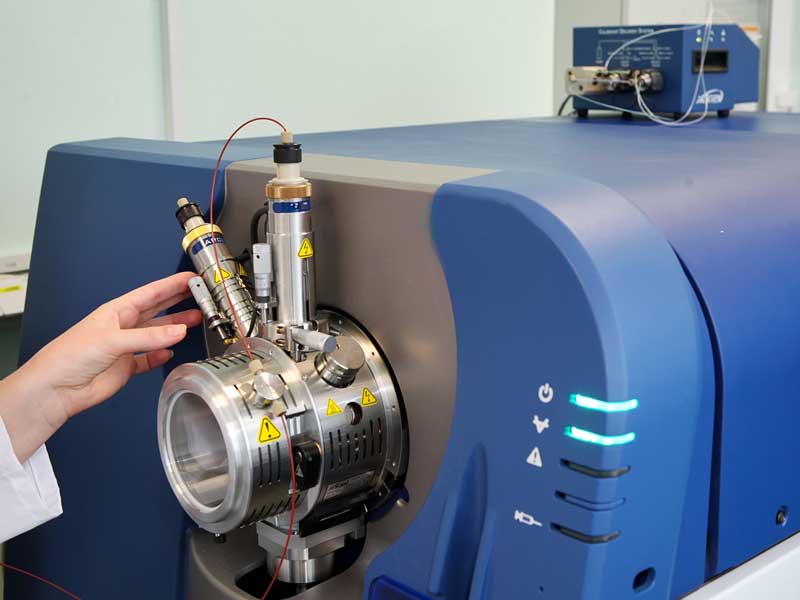The VCU Department of Chemistry is pleased to announce a generous gift of $500,000 to create the Mass Spectrometry Faculty Fund. The gift, made by anonymous donors, provides funding for the creation of a new position for an interdisciplinary mass spectrometry faculty member in the department. Maryanne Collinson, Ph.D., department chair and the John B. Fenn Professor in Chemistry, celebrates the transformational opportunity that the gift will provide.
“This gift allows us to bring back the legacy of Professor John Fenn for his pioneering work on the development of electrospray ionization for the mass spectrometric analyses of biological macromolecules,” says Collinson. John B. Fenn, Ph.D., who in 2002 was awarded the Nobel Prize for his revolutionary research on analyzing biomolecules, was a faculty member in the department from 1994 through his death in 2010.
The gift, the second largest one-time donation in the department’s history, will be instrumental in helping the department to attract new faculty talent. “Ultimately this fund will ensure enormous opportunities and new experiences for the multidisciplinary teaching and training of undergraduate and graduate students in the ever growing field of mass spectrometry. We are forever grateful to the donors for helping to make this possible,” says Collinson.
"Ultimately this fund will ensure enormous opportunities and new experiences for the multidisciplinary teaching and training of undergraduate and graduate students in the ever growing field of mass spectrometry."
The Department of Chemistry, which specializes in collaborative and interdisciplinary research in the fields of chemistry, chemical biology, chemical education, material science, and nanoscience and nanotechnology, is home to 35 faculty members, approximately 70 graduate students and more than 400 undergraduate chemistry majors. The department has an active research program with more than $3 million in annual awards in research and educational grants. They also offer two interdisciplinary Ph.D. programs in nanoscience and nanotechnology, and a Ph.D. degree in chemical biology, as well as an accelerated BS+MS program and non-thesis MS program.
